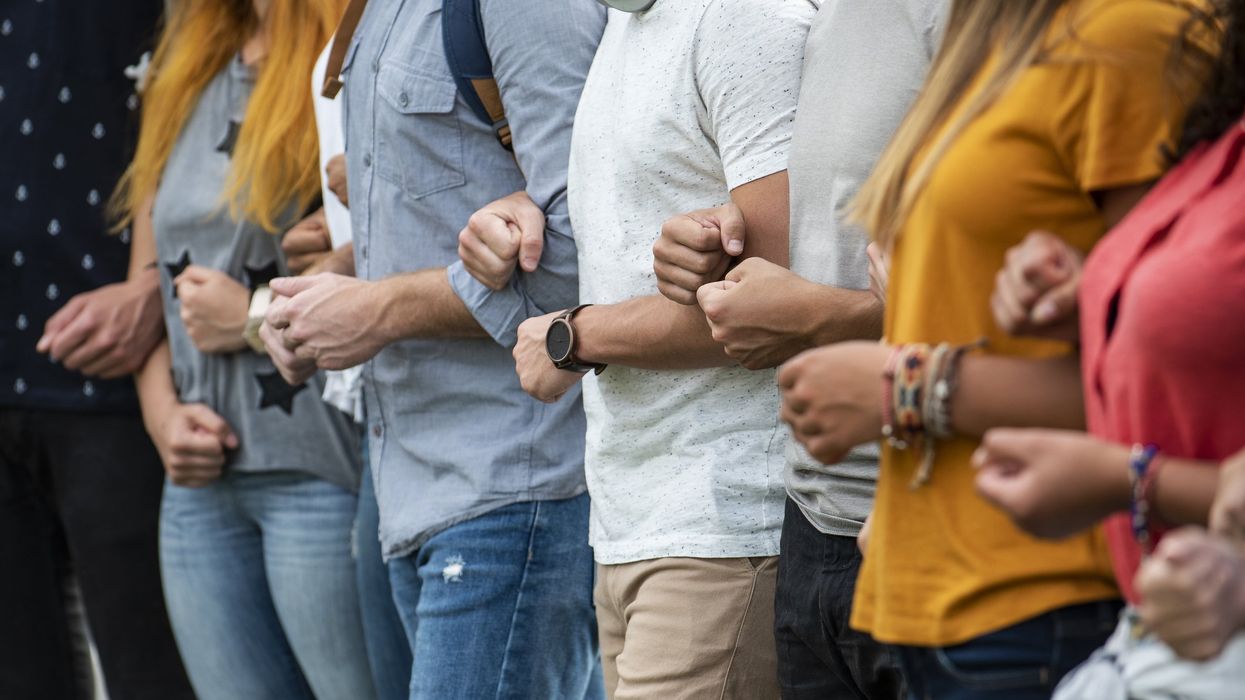Door after door, the response was the same: “Why would I vote? It’s not going to change anything.” Even in Grand Rapids, one of the key swing counties of the 2024 election, people felt despondent—powerless. But three months later, those neighbors had organized with hundreds of others in the city to win $20 million for their community—and that sense of powerlessness was changing.
We’ve swallowed a myth that the only change worth pursuing is national, forgetting it was historically robust networks of local clubs, organizations, and associations that made national change possible in the first place. This is what good organizing can do, and we need more of it.
The community members in Grand Rapids didn’t do it with a 30-second sales pitch to garner votes for election day. Instead, they simply asked: “What are the pressures facing your family?”
Everyone had a story—deaths due to a lack of traffic safety, a public water main failure that flooded dozens of homes, and rising housing prices. At the heart of each was a feeling that wealthy interests kept pouring the city’s resources into beautifying the downtown while ignoring the needs of everyday people.
Canvassers were trained not to offer solutions but to issue a challenge: “What do you want to do about that?” Neighbors who expressed an interest in taking action were invited to begin organizing with others who had similar concerns.
The organization behind this was Together West Michigan (TWM), a coalition of faith communities, schools, and neighborhood groups and an affiliate of the Industrial Areas Foundation (the oldest and largest community organizing network in the U.S.). Their goal was to put the needs of everyday people at the center of the coming elections.
In this process, leaders discovered plans for a major development in the heart of downtown: a request for $565 million in taxpayer subsidies to build luxury condominiums, a hotel, and an office building. For residents, it was more of the same—gilding the lily while people fighting to keep their homes and streets safe were patted on the head and told it would all trickle down. One leader called the proposal “ a slap in the face. ”
Jumping into action, veteran TWM leaders worked with neighbors to meet with City Commissioners who would be voting on the deal. Residents made clear that, while they did not oppose development, they did oppose a deal that took half a billion dollars in taxpayer money in exchange for minuscule investments in affordable housing and a token promise to “improve the downtown”.
When the developers refused to budge, Together West Michigan turned up the heat. 140 of its leaders held a press conference in front of City Hall, calling for a “public benefit that matches the public’s investment,” before packing the Commission Chambers to deliver testimony.
A month later, after tough negotiations, their work paid off. In front of another packed audience, the City Commission approved an amended proposal that required developers to invest an additional $20 million in local women and minority-owned businesses in exchange for the public subsidy.
But that wasn’t the only victory. In an election year where voter turnout dropped drastically across Michigan, in the precincts where TWM organized, turnout decline was drastically slowed. People voted when they saw the impact on their own lives.
At a time when it feels harder than ever to rein in the abuses of those in power, stories like this give us a clear message of hope and a model for future action. They remind us that when communities organize strategically, people really can—and often do—win.
To be sure, the evidence of Grand Rapids is anecdotal. But it’s not unique. The civil rights movement, women’s suffrage, the 40-hour work week, the abolition of child labor, and other pivotal victories in American history drew on the same type of hyper-local organizing work grounded in kitchen-table issues.
Today, in living rooms, church basements, union halls, and schools across the country, thousands of Americans carry on this legacy. They meet to identify shared concerns, organize, and take action. Their work has led to billions of dollars in public investment and corporate accountability that has transformed communities.
It’s time we brush aside the failed conviction that our problems will be solved by electing better leaders and instead recommit to investing in citizens. It’s time to return to the foundation of local organizing that networks like the IAF have pioneered and get back to the day-to-day work of developing citizens well versed in the habits of a democratic culture.
Cameron Conner is a professional community organiser currently serving as a Professor of the Practice at the Tisch College of Civic Life at Tufts University.




















Trump & Hegseth gave Mark Kelly a huge 2028 gift